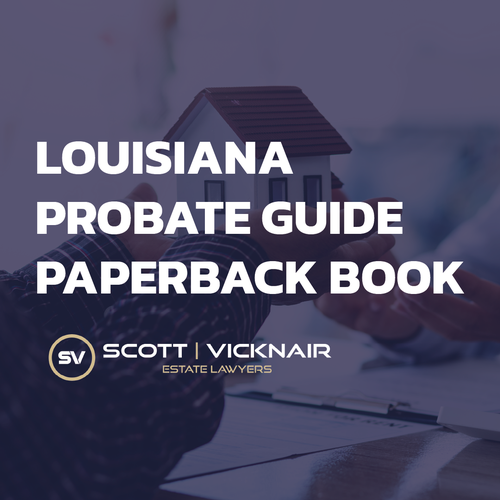The loss of a loved one can be emotionally trying, no matter the circumstances of their death. However, even grief cannot overcome the law. If any individual with a legal interest in the estate of the deceased believes the will is not valid, they could file a formal challenge contesting its validity. Unless a quick resolution is possible, a contest could be served as a lawsuit. 
Louisiana Law and the Execution of Wills
Louisiana’s succession courts have strict rules and procedures regarding how estates must be resolved after an individual’s death. These rules govern how wills must be read and enforced.
Louisiana presumes that most adults of sound mind have the legal capacity to write their own will. However, wills must still comply with state law to be accepted by a succession court. In general, any will that meets the state’s requirements will be considered valid.
Louisiana Recognizes Two Types of Wills
- Olographic testaments. This is a will written, signed, and dated by the deceased person. An olographic will does not require a notary stamp or witness signatures, provided it was written entirely in the decedent’s own handwriting.
- Notarial testaments. This will need not be handwritten and may be prepared by an attorney or other third party. A notarial will is only valid if each page is signed by the testator in the presence of a notary and two competent witnesses. The writer must explicitly state that the instrument is their testament.
However, the court may reconsider the validity of a will under certain circumstances.
Why a Will Might Be Declared Invalid
- The will is not signed.
- The testator created an olographic will but did not sign or date it.
- The decedent attempted to create an olographic will but did not do so entirely in their own handwriting.
- The notarial will was not affirmed before a notary or witnesses.
- The estate executor cannot furnish the original copy of the will.
- The witnesses had an interest in the will. For example, one or more of the witnesses was a creditor to the estate or a named beneficiary.
- The testator’s signature was forged or cannot be verified.
- The decedent was coerced into creating or altering the will.
- The deceased person was not of sound mind.
What Happens if a Will Is Found Invalid?
If a will is found invalid and cannot be executed under Louisiana law, the outcome could be catastrophic for everyone involved.
In some limited instances, the court could simply invalidate a provision of the will. However, if the will itself was not created in accordance with state law, it may be deemed ineligible by a succession court. If this happens, a judge might order that the estate be treated as if the decedent died intestate, or without a will.
Louisiana law requires that intestate assets be disbursed according to a strict legal formula. This formula privileges the surviving spouse, children, and other close blood relations—including people explicitly excluded from the original will. Since intestate proceedings do not account for the decedent’s wishes, they could result in intended beneficiaries losing some or all of their inheritance.
Our Louisiana Succession Attorneys Can Help You
Estate litigation can be complex, especially if the deceased person’s will could be invalid or their intent was not clear. If you are defending an estate from a contest or planning to challenge the validity of a will, you need to understand the potential outcomes and how they could affect you.
Scott Vicknair Law’s team of succession attorneys can help you review the will, the viability of a challenge, and the deceased person’s other estate plans, if any. Please call us at 504-264-1057 to get started on your case today.
|
Related links: |














